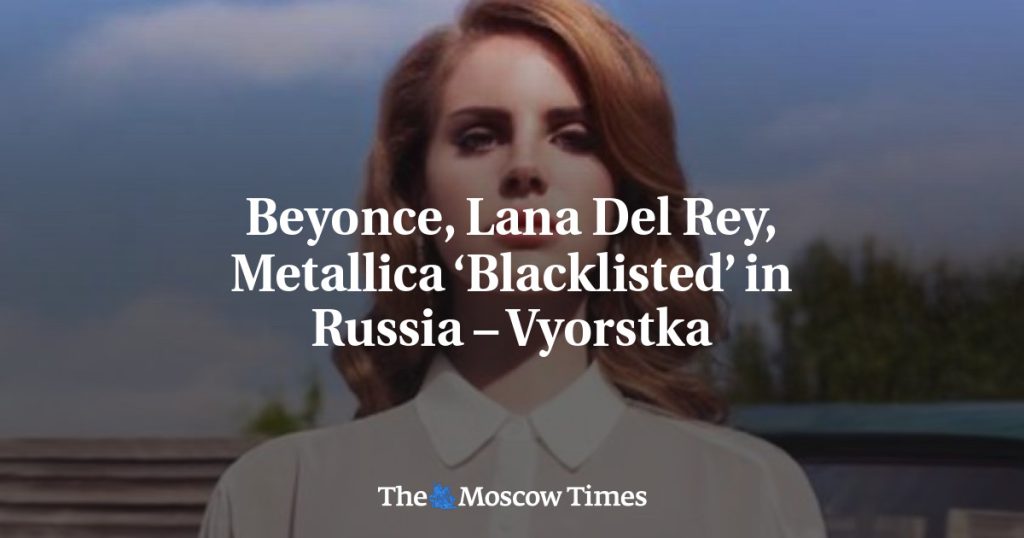An investigative news website in Russia, Vyorstka, has reported the circulation of a list of 79 “blacklisted” artists among Russian ad agencies and event organizers. This list includes popular names such as Beyonce, Lana Del Rey, and Metallica. Recipients of this list are strongly advised to exclude the artists’ songs from their promotional materials and events. Despite being on the blacklist, a member of one banned band mentioned that they were still able to perform at events and festivals. Vyorstka revealed that one-third of the blacklisted artists have concerts scheduled in Russia within the next six months, with 19 artists having previously had their shows canceled for political reasons.
The report also highlighted the inclusion of Western acts like Hozier and Florence and the Machine, along with exiled Russian stand-up comics and apolitical TikTokers on the blacklist. Interestingly, the list even features two Russian artists who openly support their country’s invasion of Ukraine. It was also mentioned that six artists have been removed from previous iterations of the blacklist, including one who had criticized the Russian-Ukrainian war. However, around 10 acts who performed in Russian-occupied territories of Ukraine after initially speaking out against the war are still said to be blacklisted.
Vyorstka disclosed that in addition to artists, apolitical TikTokers have been blacklisted for their relationships with anti-war public figures. The reasons for blacklisting these individuals remain unclear, but it appears that any association with those critical of the Russian government’s actions may result in being added to the list. The development of such a list demonstrates the extent to which artistic expression and freedom may be restricted in Russia due to political considerations. It raises questions about the implications for artists and performers who choose to speak out against government actions or express controversial opinions, and the potential consequences they may face as a result.
The fact that some blacklisted artists are still able to perform at events despite their inclusion on the list suggests a level of inconsistency in the enforcement of these guidelines. It seems that the blacklist may not have a uniform impact on all artists, leaving room for interpretation and negotiation. The decision to blacklist certain individuals, including those who have previously criticized the government or performed in controversial locations, reflects a broader pattern of political control over artistic expression in Russia. The actions taken against artists who have expressed dissenting views raise concerns about the limitations placed on freedom of speech and creativity in the country.
The blacklist’s inclusion of both international and domestic artists, as well as individuals from various sectors such as comedy and social media, indicates the scope of the restrictions being imposed. The targeting of apolitical figures for their associations with anti-war sentiments suggests a broader effort to suppress any form of dissent or opposition to the government’s policies. The ongoing conflict between Russia and Ukraine appears to be a central point of contention leading to the blacklisting of artists who have expressed views on the issue. Overall, the existence of such a blacklist and the implications it has for artists and performers in Russia raise important questions about freedom of expression and censorship in the country.


